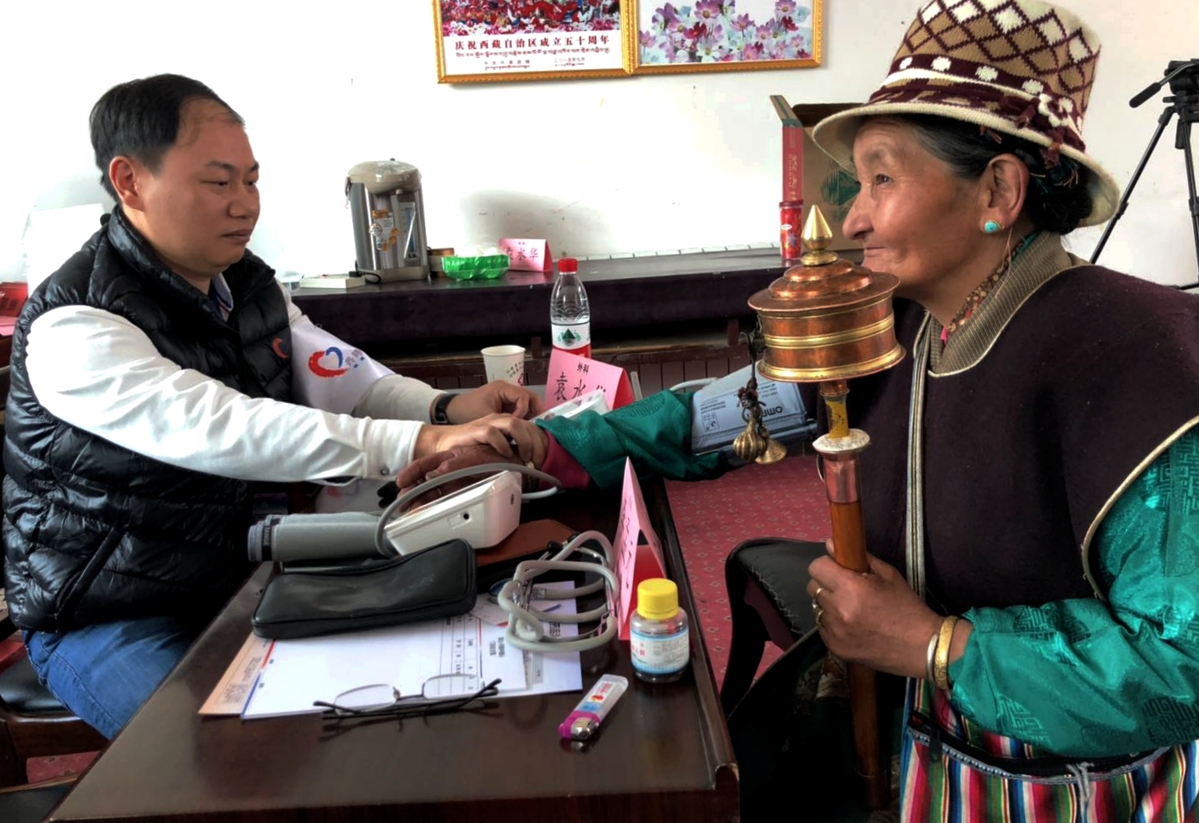Visiting medics help Tibetans live the high life


Free treatment
Yuan Shuihua, president of the Beijing Junyi Traditional Chinese Medical Hospital, was one of 16 doctors who volunteered to provide services in Kongpo'gyada.
He led Sherab Dorje's uncle from the bustling consulting room, and speaking in a measured tone intended to help the man - who has limited understanding of Mandarin - better understand, he explained the possible causes of the boy's seizures and suggested suitable therapies.
"The key is to identify the cause of the convulsions, rather than handing out pills to curb acute symptoms," Yuan told Sherab Dorje's uncle. "The root could be as simple as a nutritional deficiency, such as a lack of vitamin B, which can easily be cured by taking supplements.
"However, in the case of a genetic flaw or issues associated with brain development, he will require a more-holistic treatment plan," Yuan added as Sherab Dorje's uncle nodded wistfully.
In the consulting room, another doctor took Sherab Dorje's pulse and blood pressure, then he handed the boy a pamphlet that listed health tips based on his condition.
Like Sherab Dorje, most of the patients at the hospital were given free medication, and the visiting medics read the results of their scans and tests. The doctors also discussed the patients' illnesses with them to provide deeper understanding of the problem and the treatments available.
"After decades of channeling medical resources from the more-developed regions into Tibet, it's becoming increasingly important to reshape community norms that equate falling ill with feeling pain," Yuan said.
Medical workers setting out for the county share a unanimous observation: to further improve the well-being of people in Tibet, it is vital to foster health awareness, rather than simply giving out medication to provide a onetime alleviation of discomfort.
























